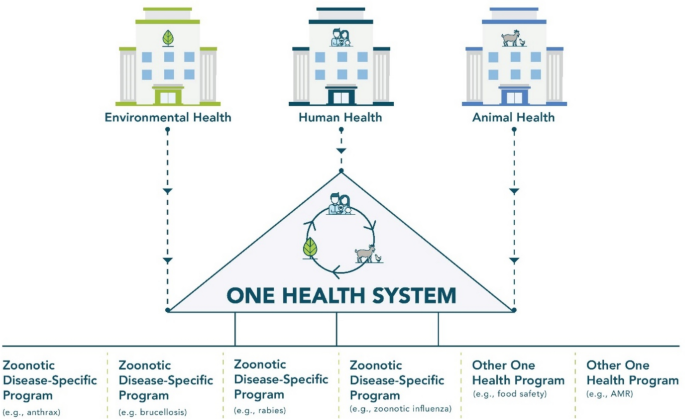Best Tips To Selecting Natural Dog Probiotics
Wiki Article
What Are The Most Frequent Pet Health Conditions?
The medical conditions of animals differ based on the species, age as well as the overall health of an individual animal. Common issues with animals' health include:
Heart Disease- Heart disease such as congestive dysfunction causes a decrease in cardiac function for animals. This is especially the case for older animals. Endocrine Disorders: Hormonal imbalances can make animals unwell.
Diabetes- Diabetes mellitus can occur in pets and requires careful management, which includes insulin therapy as well as dietary modifications.
Renal (Kidney Disease) - Kidney disease can be common among cats and older dogs. It could require medical attention and diet adjustments.
Bladder and Urinary Tract issues - Urinary tract infections, bladder stone, and urinary continence all can affect your pet.
Allergies: Animals may be allergic to foods, allergens found in the environment, and even contact allergies. This can result in digestive and skin problems.
Behavior Issues - Problems with behavior like aggression, anxiety and phobias can adversely affect pets' well-being and require an intervention from a veterinarian.
Prevention and early detection of wounds and injuries is crucial to the health and welfare of animals. Regular veterinary exams, vaccinations for animals as well as parasite control, and a balanced food diet are all methods to help prevent medical issues. Additionally, you should seek medical attention when your pet is showing any signs of illness or discomfort. Find the top pet allergy relief supplements for website info.

What Are The Best Vitamins, Probiotics And Supplements For Dogs To Give Them?
Vitamins, probiotics or other supplements should be selected based on the individual needs of your pet and the advice of your veterinarian. It's vital to give your dog a balanced and balanced diet. However, certain dogs can benefit from supplements. Here are a few supplements which can be beneficial to dogs.
Multivitamins: A high-quality food for dogs ought to contain the majority of the minerals and vitamins that your dog needs. Multivitamin supplements may be beneficial if your dog is a pet with special needs for diet or restrictions. It is important to ensure that the supplement is appropriate for canines. Certain vitamins could be toxic if taken in large quantities. Omega-3 Fatty Acids Omega-3 fatty oils, like fish oil, are able to improve the quality of coat and skin and decrease inflammation as well as benefit joints. They are usually advised for dogs suffering from allergies to the skin, skin problems or arthritis.
Probiotics. Probiotics may help improve digestion health by maintaining an ideal gut microbiome. They are frequently employed to help with gastrointestinal issues like diarrhea and to boost the immune system.
Glucosamine and Chondroitin - These two supplements have been utilized for years to aid dogs reduce their symptoms of arthritis.
Check with your veterinarian prior to giving your pet any nutritional supplements. They will offer advice specific to your dog's unique requirements. Dosages may differ based on factors like your dog's size as well as age and health status, and excessive supplementation can cause harm. It's also important to select supplements from brands you trust. Consult a veterinarian immediately in the event of any reactions or symptoms that are unusual. A well-balanced and veterinarian-recommended diet is typically the best way to meet your dog's nutritional needs, and supplements should only be used when necessary and under professional guidance. Best of the finest pet herbal supplements for cats with digestive issues for blog tips.

How Prevalent Is Kidney Failure Or Skin Allergic Reactions? Yeast Infection In Dogs? What Treatment?
There are numerous ailments that could be affecting your dog, such as yeast infections and skin allergies. They vary in severity dependent on the breed, age, and general health. Here is an overview of each condition that is prevalent, as well as possible treatment options.
Skin Allergies Prevalence Skin allergies impact a large part of dogs. Allergies may be triggered by food, environmental elements (such dust mites or pollen) or even contact allergies.
Symptoms: Itching, skin redness and hot spots can be present. Hair loss can also be a possibility.
Treatment- To control skin allergies, it is essential to recognize and reduce exposure to allergens. Treatment options include antihistamines as well as corticosteroids as well as hypoallergenic foods, medication such as cyclosporine, and hypoallergenic diets. Long-term management can include testing for allergies and immunotherapy.
Some dogs are not afflicted from these issues. Also, prevalence varies between individual and breeds. Regularly scheduled veterinary exams as well as a balanced diet and preventative actions (such as good hygiene and flea prevention) will all help minimize the risks. If you have concerns about your dog's health issue, whether it be yeast infections or skin allergies, your vet is the best person to consult for an assessment and treatment plan. Early intervention could improve the quality of life of your pet and can lead to better results. Take a look at the most beautiful pet herbal supplements for foster dogs for site tips.
